When it comes to the competitive SUV market, the Nissan X-Trail and Renault Austral stand out as two noteworthy contenders, each bringing a unique blend of features, performance, and practicality. This comparison explores their technical specifications, innovations, and overall suitability for daily driving and adventure alike.
Nissan X-Trail vs Renault Austral - Differences and prices compared
Compare performance (213 HP vs 200 HP), boot space and price (34200 £ vs 29700 £ ) at a glance. Find out which car is the better choice for you – Nissan X-Trail or Renault Austral?
Design and Dimensions
The Nissan X-Trail boasts a robust and bold exterior, measuring 4680 mm in length, 1840 mm in width, and standing 1720 mm tall, which gives it a commanding presence on the road. Its thoughtful design also includes ample trunk space, offering a maximum capacity of 585 liters, making it perfect for families and long journeys.
In contrast, the Renault Austral is slightly more compact, with dimensions of 4510 mm in length, 1825 mm in width, and 1618 mm in height. Its trunk capacity is also respectable but smaller at 500 liters. While the Austral may not have quite the same volume for cargo as the X-Trail, its design still emphasizes practicality for everyday use.
Powertrain and Performance
Both SUVs feature advanced engine options, with the Nissan X-Trail available in multiple configurations, including petrol MHEV and full hybrid models. The X-Trail's power ranges from 163 to 213 horsepower, with torque figures peaking at 525 Nm, ensuring it can handle a variety of driving conditions. Acceleration from 0-100 km/h is impressive, with times as quick as 7 seconds, depending on the variant.
The Renault Austral, while slightly less powerful, still delivers a competent performance with engines producing up to 200 horsepower and 270 Nm of torque. It achieves similar 0-100 km/h times, with the quickest variant reaching 8.4 seconds. Both models have automatic transmissions, but the X-Trail also offers a CVT setup along with a reduction gearbox for enhanced off-road capability.
Fuel Efficiency
In the race for efficiency, the Nissan X-Trail performs admirably, with fuel consumption ratings ranging from 5.7 to 6.9 L/100km depending on the variant. The capabilities of a hybrid system give it an edge in eco-friendliness, making it a great choice for environmentally conscious drivers.
The Renault Austral, however, excels in fuel efficiency with ratings as low as 4.7 L/100km, particularly in its hybrid variant, offering a potentially lower running cost for everyday driving. The lower emissions of 105 g/km also underscore its eco-friendly design ethos.
Interior and Technology
Inside the Nissan X-Trail, you'll find a spacious and technologically advanced cabin suitable for up to seven passengers in certain configurations. Features include advanced safety systems, a user-friendly infotainment system, and high-quality materials that enhance comfort and driving pleasure.
On the other hand, the Renault Austral focuses on tech-savvy solutions, boasting a sleek interior equipped with the latest in infotainment technology and driver-assistance features. Its cabin, while not as spacious as the X-Trail’s, offers a modern feel that appeals to younger audiences and tech enthusiasts.
Driving Experience and Handling
The Nissan X-Trail's all-wheel drive option gives it a significant advantage in terms of handling and stability, particularly in adverse weather conditions or off-road situations. Its well-tuned suspension provides a smooth ride, balancing comfort with sportiness.
Meanwhile, the Renault Austral’s front-wheel drive system, paired with its lighter curb weight of 1539 to 1592 kg, offers nimble handling and responsiveness. Its smaller footprint allows easy maneuverability in urban settings, making it quite practical for city dwellers.
Conclusion
The comparison between the Nissan X-Trail and Renault Austral reveals two strong contenders in the SUV segment, each perfectly suited to different driver needs. The X-Trail emerges as the choice for those needing space, a powerful engine, and all-wheel drive capabilities, while the Austral appeals to those who prioritize fuel efficiency, innovative technology, and a modern design.
Ultimately, both vehicles reflect their brands' commitment to innovation and quality, making them worthy options in today’s dynamic automotive landscape.
Here’s where it gets real: The technical differences in detail
Costs and Efficiency:
Looking at overall running costs, both models reveal some interesting differences in everyday economy.
Renault Austral has a a bit advantage in terms of price – it starts at 29700 £ , while the Nissan X-Trail costs 34200 £ . That’s a price difference of around 4415 £.
Fuel consumption also shows a difference: Renault Austral manages with 4.80 L and is therefore a bit more efficient than the Nissan X-Trail with 5.70 L. The difference is about 0.90 L per 100 km.
Engine and Performance:
Power, torque and acceleration say a lot about how a car feels on the road. This is where you see which model delivers more driving dynamics.
When it comes to engine power, the Nissan X-Trail has a hardly perceptible edge – offering 213 HP compared to 200 HP. That’s roughly 13 HP more horsepower.
In acceleration from 0 to 100 km/h, the Nissan X-Trail is distinct quicker – completing the sprint in 7 s, while the Renault Austral takes 8.40 s. That’s about 1.40 s faster.
There’s also a difference in torque: Nissan X-Trail pulls significantly stronger with 525 Nm compared to 270 Nm. That’s about 255 Nm difference.
Space and Everyday Use:
Whether family car or daily driver – which one offers more room, flexibility and comfort?
Seats: Nissan X-Trail offers noticeable more seating capacity – 7 vs 5.
In curb weight, Renault Austral is hardly perceptible lighter – 1539 kg compared to 1668 kg. The difference is around 129 kg.
In terms of boot space, the Nissan X-Trail offers hardly perceptible more room – 585 L compared to 555 L. That’s a difference of about 30 L.
When it comes to payload, Nissan X-Trail a bit takes the win – 574 kg compared to 477 kg. That’s a difference of about 97 kg.
Who wins the race in the data check?
The Nissan X-Trail leads convincingly in the objective data comparison.
This result only shows which model scores more points on paper – not which of the two cars feels right for you.
Costs and Consumption
View detailed analysis
Engine and Performance
View detailed analysis
Dimensions and Body
View detailed analysis
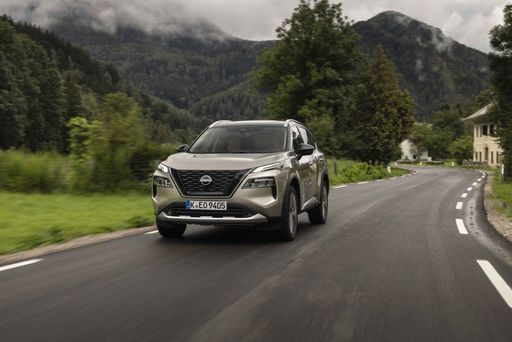
Nissan X-Trail
Nissan X-Trail
The Nissan X-Trail is a roomy, no-nonsense family SUV that mixes sensible practicality with a quietly modern look, making it an easy choice for busy lives and weekend escapes. It drives with calm confidence, delivers a comfortable ride and sensible tech, and won’t demand drama while doing the everyday heavy lifting.
details
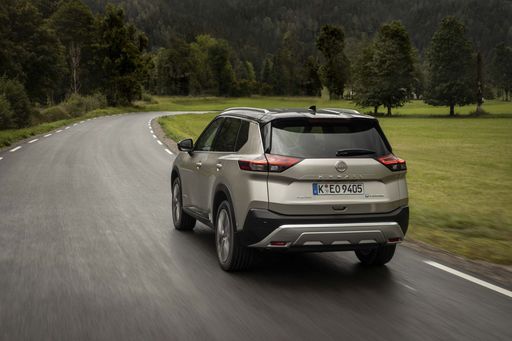
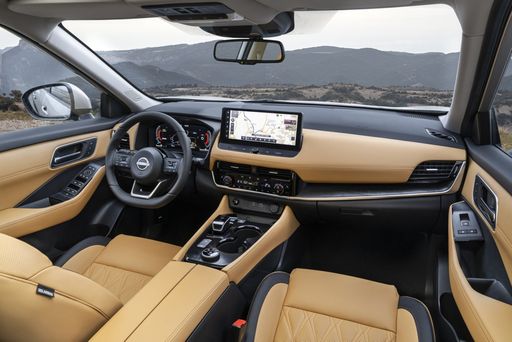
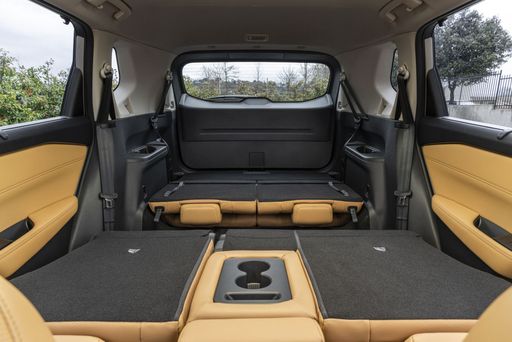
Renault Austral
The Renault Austral dresses the family SUV in elegant modern looks and a surprisingly grown-up cabin that feels thoughtful and livable. It balances comfort and clever technology with a relaxed road presence—an appealing choice for buyers who want style and everyday sense without fuss.
details
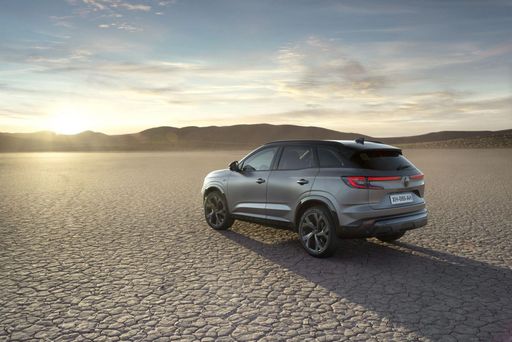
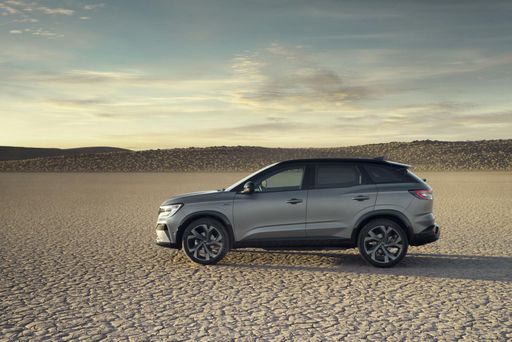
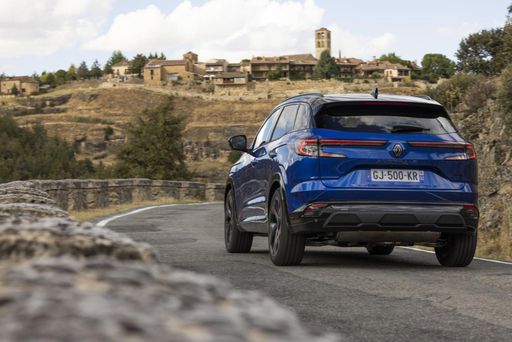
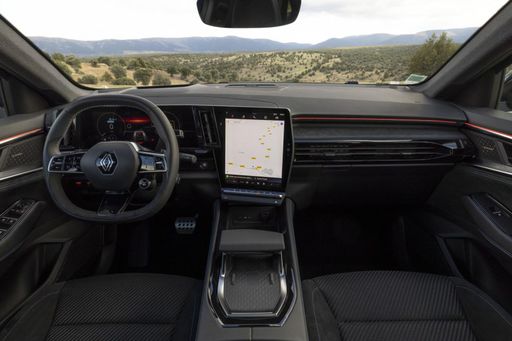
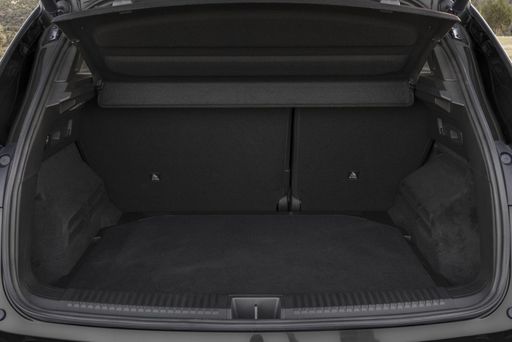
Costs and Consumption |
|
|---|---|
|
Price
34200 - 50500 £
|
Price
29700 - 37800 £
|
|
Consumption L/100km
5.7 - 6.9 L
|
Consumption L/100km
4.8 - 6.5 L
|
|
Consumption kWh/100km
-
|
Consumption kWh/100km
-
|
|
Electric Range
-
|
Electric Range
-
|
|
Battery Capacity
-
|
Battery Capacity
-
|
|
co2
131 - 161 g/km
|
co2
109 - 148 g/km
|
|
Fuel tank capacity
-
|
Fuel tank capacity
55 L
|
Dimensions and Body |
|
|---|---|
|
Body Type
SUV
|
Body Type
SUV
|
|
Seats
5 - 7
|
Seats
5
|
|
Doors
-
|
Doors
5
|
|
Curb weight
1668 - 1961 kg
|
Curb weight
1539 - 1613 kg
|
|
Trunk capacity
177 - 585 L
|
Trunk capacity
527 - 555 L
|
|
Length
-
|
Length
4533 mm
|
|
Width
1840 mm
|
Width
1825 mm
|
|
Height
-
|
Height
1645 mm
|
|
Max trunk capacity
-
|
Max trunk capacity
1736 - 1761 L
|
|
Payload
432 - 574 kg
|
Payload
464 - 477 kg
|
Engine and Performance |
|
|---|---|
|
Engine Type
Petrol MHEV, Full Hybrid
|
Engine Type
Petrol MHEV, Full Hybrid
|
|
Transmission
Automatic
|
Transmission
Automatic
|
|
Transmission Detail
CVT, Reduction Gearbox
|
Transmission Detail
CVT, Automatic Gearbox
|
|
Drive Type
Front-Wheel Drive, All-Wheel Drive
|
Drive Type
Front-Wheel Drive
|
|
Power HP
163 - 213 HP
|
Power HP
158 - 200 HP
|
|
Acceleration 0-100km/h
7 - 9.6 s
|
Acceleration 0-100km/h
8.4 - 9.7 s
|
|
Max Speed
-
|
Max Speed
180 km/h
|
|
Torque
300 - 525 Nm
|
Torque
270 Nm
|
|
Number of Cylinders
3
|
Number of Cylinders
3 - 4
|
|
Power kW
120 - 157 kW
|
Power kW
116 - 147 kW
|
|
Engine capacity
1497 cm3
|
Engine capacity
1199 - 1332 cm3
|
General |
|
|---|---|
|
Model Year
2025
|
Model Year
2025
|
|
CO2 Efficiency Class
F, D, E
|
CO2 Efficiency Class
E, C
|
|
Brand
Nissan
|
Brand
Renault
|
Is the Nissan X-Trail offered with different drivetrains?
The Nissan X-Trail is offered with Front-Wheel Drive or All-Wheel Drive.
